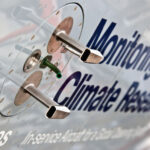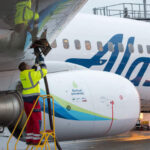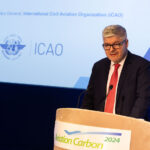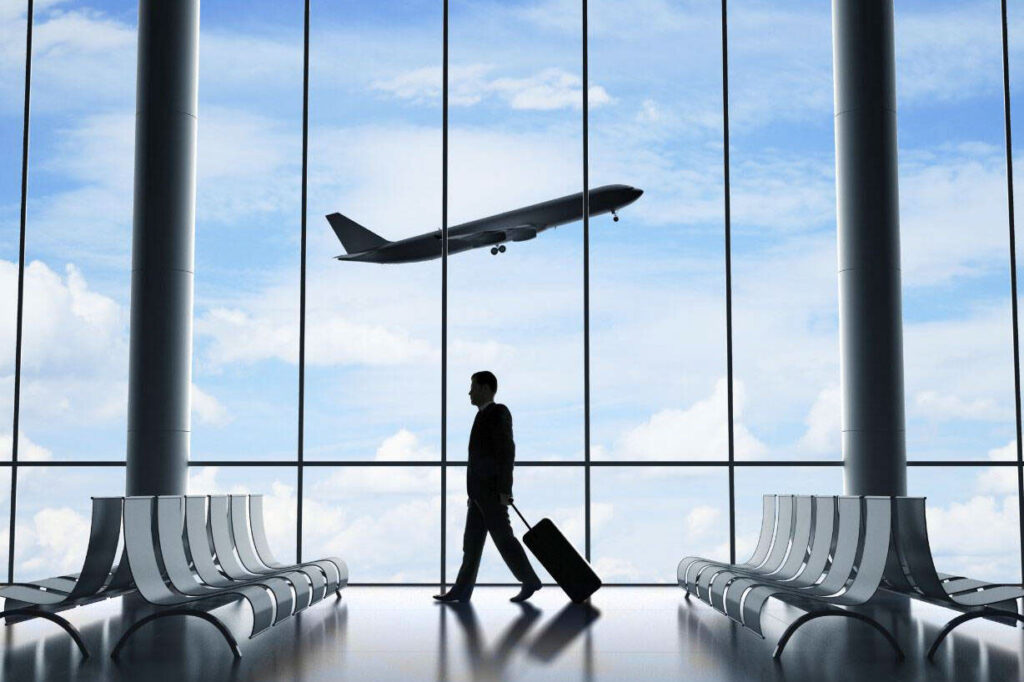European NGO Transport & Environment (T&E) and a coalition of 13 partners have launched a campaign urging corporates to address their travel emissions and lower the level of trips being made for business. They say the dramatic fall in business travel and the rise in the use of videoconferencing as a result of the Covid pandemic presents a once-in-a-lifetime opportunity to lock in emission reductions from global corporate flying. Reducing business flights can also make a significant contribution at a time when there is pressure to reduce dependency on oil, they add, as highlighted in a recent 10-point plan issued by the International Energy Agency to cut oil use. To coincide with the launch of the Travel Smart campaign, T&E has published the results of an assessment of global companies that were evaluated and ranked in terms of business travel commitments, air travel reduction targets, timelines and reporting. It found current targets were not yet sufficient to reduce GHG emissions in line with 1.5C warming scenarios and reporting is “fuzzy and unstandardised”.
In a 2020 report, McKinsey & Company estimated that business travel accounted for between 15% and 20% of all air travel in 2019, representing around 154 million tonnes of CO2. If this was reduced by half in Europe alone, it would result in an emissions cut of 32.6 MtCO2 by 2030, says T&E, whose new campaign is asking companies to commit publicly to an absolute target of at least a 50% reduction in flying by 2025 or sooner, based on 2019 levels.
The Global Business Travel Association (GBTA) has estimated business travel spending, which typically accounts for between 60% and 70% of airline revenues, declined by 52% in 2020 as a result of the pandemic, from $1.4 trillion in 2019 to $694 billion in 2020. What the future holds for business travel is currently uncertain, with the GBTA predicting it will fully recover to 2019 spending by 2025, whereas a survey by McKinsey of sustainability professionals at 100 global businesses found overseas travel in the next two to three years will significantly come down compared to pre-Covid levels.
“It is difficult to know whose prediction is the more accurate, but what is clear is that if old habits return, it will be harder to break them,” says a report of the T&E study. “A short window exists right now to encourage companies to adopt emission reduction targets and lock in the lower emissions habits they have acquired during the pandemic.”
T&E’s Corporate Travel Campaign Manager, Denise Auclair, who joined the organisation last year, explained the reasoning behind the Travel Smart campaign. “We think there are a number of elements in place showing a movement towards maintaining reduced levels of travel and flying,” she told GreenAir. “Business people have found how easy it is to have an online alternative, particularly to long-distance flying, where the majority of emissions are.
“One bank told us they were going to reduce their levels of flying to less than 50% of pre-pandemic levels. A head of a major bank said recently he would be taking fewer trips of two to three days duration and replacing them with longer ones. Morgan Stanley reported around 25-30% of their business could be done online.”
Auclair said companies were recognising a need to provide employees with an alternative to frequent air travel and corporate investors were paying greater attention to climate action by companies, as well as ways costs could be cut quickly. “We’re not saying there should be an across the board halt in company travel, just that there should be a more purposeful approach to it.”
The study by T&E, carried out with Stand.Earth Research Group, created a database to enable it to rank 230 companies based in Europe and the US, with each company attributed a final grade of A to D according to their business travel reduction targets and reporting levels.
It found the majority of companies that are currently reporting business or air travel emissions have only broad emissions reduction pledges. “This provides an opportunity for these companies to further improve their climate commitments, by refining them to include ambitious air travel reduction commitments and timelines, in line with the reductions they experienced in 2020,” says the report.
Eight companies, including Zurich Insurance Group, Lloyds Banking and Ernst & Young, ranked highest for their corporate travel emissions reduction plans, while others with the lowest D score were predominantly from the technology sector, such as Microsoft, IBM, Google and Facebook (now Meta). The so-called “laggards” were ranked low because they mainly lacked business travel commitments and reduction targets, even while disclosing their emissions.
However, “laggards” such as Microsoft and Meta have joined corporate programmes to stimulate demand in the use of sustainable aviation fuels as a way of reducing their travel carbon footprints. Microsoft recently purchased SAF for use on a United Airlines flight as part of a ‘book and claim’ pilot initiative (see article) and its Climate Innovation Fund invested $50 million to support construction of a SAF facility (see article).
“It’s important that companies are looking at different options to reduce their emissions, including sustainable aviation fuels, but what we need to look at is by when those changes will be felt,” responded Auclair. “At T&E we look closely at SAF and our best estimate is that by 2030 we could be at 5% levels of SAF – maybe 10% if we’re ambitious – of total fuel use. Right now, until then, the best way we have to reduce emissions is to fly less, while SAF is building up and investments are taking place.”
She said there were signs some companies were starting to move away from carbon offsetting as a means of compensating for business travel emissions, describing it as “yesterday’s game”. “While the motivation behind offsetting isn’t wrong, we at T&E think offsetting has been shown to be ineffective and not addressing the core problem of rising emissions.”
Having published the study, Auclair said she wanted to work with leading companies on how they could “step up” commitments to target setting and reporting. “There is a job to be done on detailed and transparent reporting of emissions so that we can actually look at performance and measure progress. There’s a lot happening now on company sustainability reporting. We want to inspire and support this movement towards more purposeful travel.”















More News & Features
EASA releases status report on Europe’s SAF production and readiness to meet blending targets
New study highlights differing strategies and barriers to decarbonising aviation in UK and Europe
SITA teams with Arab airlines on developing technology to enhance flight sustainability
Airbus enters partnerships with airlines Wizz and EVA to help prepare for SAF introduction
European aviation players launch Project SkyPower to drive investment in e-SAF and meet EU and UK mandates
Loganair and Heart partner on UK electric flight, while magniX and NASA unveil US e-test aircraft